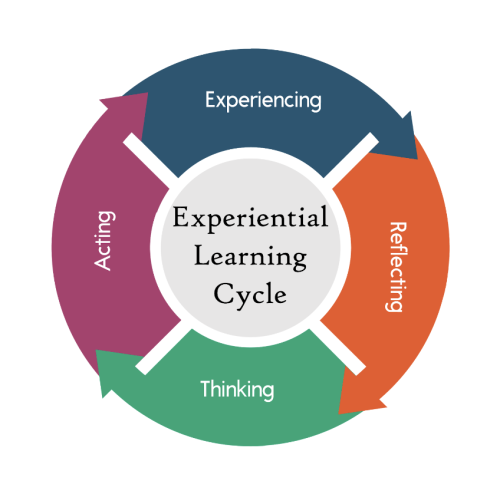Experiential Learning is the New QEP Topic
A couple weeks ago, Wake Forest announced experiential learning as the next Quality Enhancement Plan (QEP) topic. A QEP topic is a required part of the university’s SACSOC accreditation and a new one is selected every ten~ years. The main idea is that the university will focus on further implementing experiential learning in a way that enhances student learning and success.
As you may recall, for the last two rounds, our QEP was related to the global Wake Forest initiative, which saw increased efforts to, “cultivate global mindsets and create collaborative opportunities to advance a global campus community.” Library workers served on multiple committees, projects, facilitated workshops, and even travelled abroad (!) in support of this past initiative. In short, the QEP topic influences both our day-to-day work and professional opportunities in ways we may not even imagine as possibilities yet. This means it’s important to start thinking about experiential learning now so we can be knowledgeable and prepared for these conversations moving forward.
ZSR Half-Day Experiential Learning Workshop
Okay… but you might be wondering, what exactly is experiential learning? Isn’t this just learning by doing? Excellent questions!
On Friday, May 10th, 2024, thirteen librarians with teaching responsibilities representing RIO, DSC, and SCA attended a half-day experiential learning workshop to learn more about the topic. It was led by Kristi Verbeke and Anita McCauley from the Center for the Advancement of Teaching.
Over the course of two 75 minute sessions, we learned about how experiential is defined and implemented, including discussions of Kolb’s Experiential Learning Cycle and the links between experiential learning and the AAC&U’s High Impact Practices.
We learned that essential components of experiential learning include:
- Hands-on Experience: Students actively participate in real-world activities and exercises
- Reflection: Students analyze and evaluate their experiences to gain insights.
- Interactive Learning: Knowledge is gained through active engagement and discovery.
We also discussed the implications for library instruction. We are still early in the process of imagining what this might look like in the library, but we had productive conversations about how can we best support our faculty with experiential learning across all our disciplines, what experiential learning might look like in our own classrooms and teaching, how we might plan ahead for future projects, and how we might also consider issues like capacity and workload in the conversation.
Overall, it was a great day, and we owe tremendous thanks to the lovely folks of CAT for facilitating this learning experience! I’ll leave you with an illustration of Kolb’s Experiential Learning Cycle 🙂


7 Comments on ‘ZSR Experiential Learning Workshop’
Thanks for sharing about this, especially for those of us unable to attend!
It was a wonderful workshop! Many thanks for setting this up, and a shout out to Kristi Verbecke and Anita McCauley for leading!
Thanks for sharing the insights gained from the workshop. Very helpful!
Thank you for this helpful post!
Thank you for sharing, Amanda. This is very helpful! The topic of experiential learning – and what it means in practical and operational terms for the Library- is one that I hope we thoroughly explore once we start implementing the strategic framework.
Great to hear about the workshop, the QEP, and glean a little about what experiential learning could look like – and how we can adjust to make time for doing such work. Sounds very rewarding!
I am grateful to have attended the workshop in advance of the QEP announcement, as I have a better understanding of this critical focus for our university!